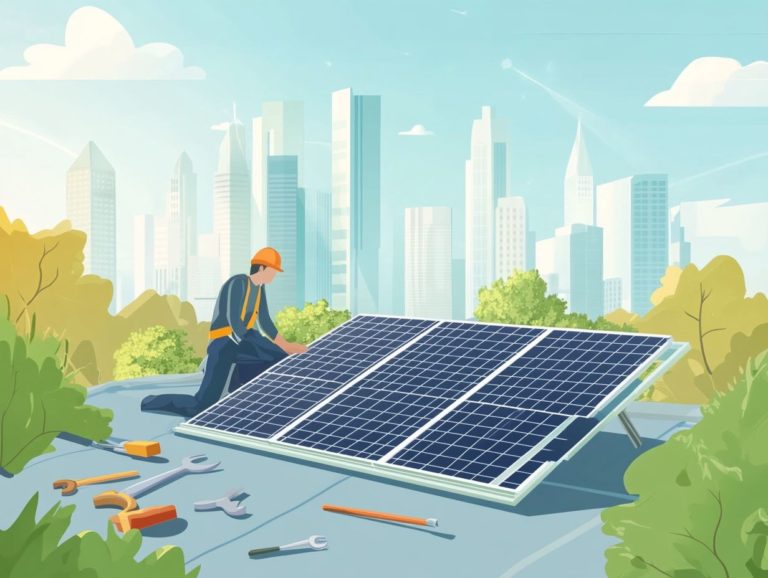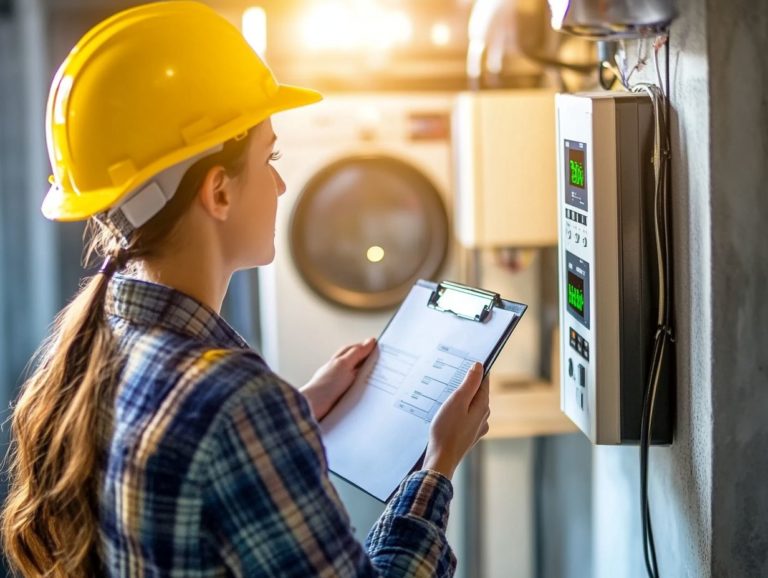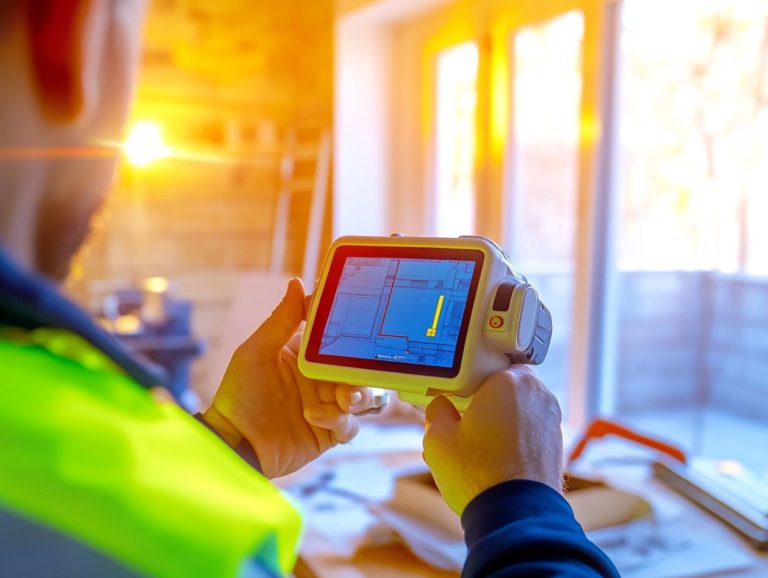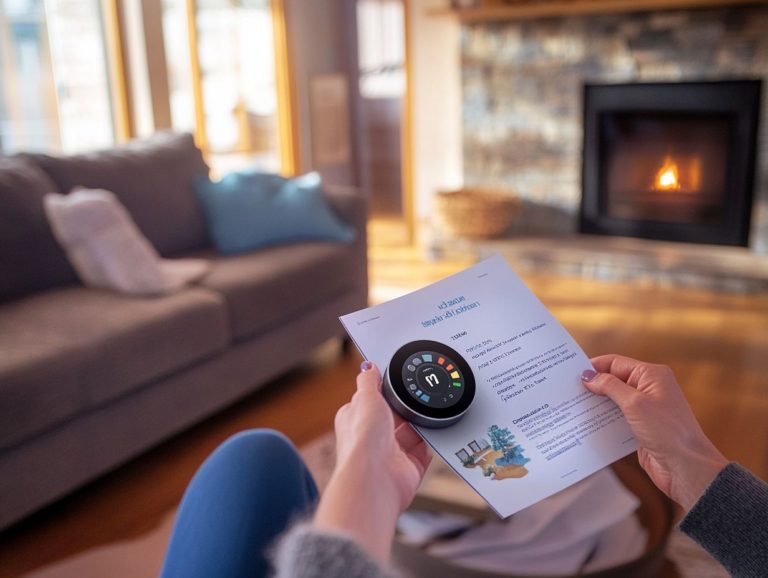What are the Basics of Water Conservation?
Water conservation is more than just a buzzword; it is a crucial practice that can profoundly influence both the environment and the economy.
This exploration delves into the essential facets of water conservation, underscoring its significance while providing practical tips designed for your everyday life.
By grasping the advantages it offers to both the planet and your finances, you can tackle common challenges head-on!
We share valuable insights and strategies that empower you to adopt effective water-saving habits in your daily routine.
Discover how simple adjustments can pave the way for a more sustainable future.
Contents
Key Takeaways:
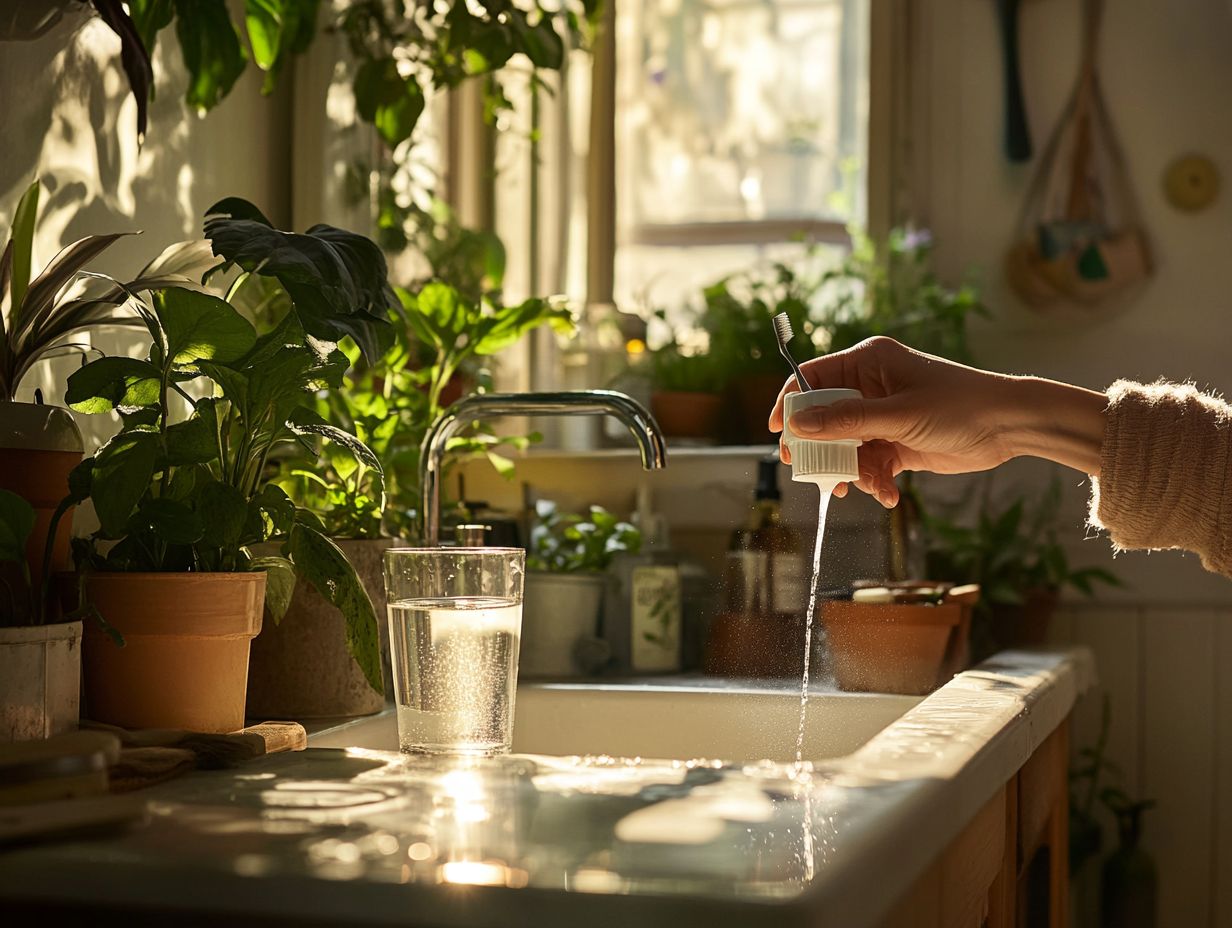
Water conservation is crucial for preserving our planet’s natural resources and promoting sustainability.
Simple actions such as fixing leaks and using efficient appliances can make a significant impact on water conservation.
The benefits of water conservation extend beyond the environment, with potential financial savings and improved water quality being key advantages.
Understanding Water Conservation
Understanding the importance of water conservation is crucial in today s world, particularly as you navigate challenges brought on by climate change and dwindling water resources.
Water conservation is not solely about individual efforts; it also includes community projects run by the city that are designed to reduce overall water consumption.
In regions like North Carolina, municipalities are actively involved in water management, promoting sustainable practices and enhancing conservation awareness among residents.
As you explore this topic further, you’ll uncover the significance of conserving water and its direct impact on your water footprint.
You’ll also discover practical strategies that both individuals and organizations can adopt for effective water management.
Defining Water Conservation and Its Importance
Water conservation is about using water efficiently to cut down on unnecessary waste. Its significance is more crucial than ever in light of the current global water crisis.
Drought and water scarcity challenge communities daily. Grasping and implementing effective water conservation strategies is essential.
This approach not only ensures that the water resources at your disposal are used sustainably but also protects ecosystems and bolsters agricultural productivity.
By incorporating simple practices like:
- Fixing leaks
- Choosing drought-resistant plants for landscaping
- Utilizing water-efficient appliances
you can make a meaningful impact. Numerous organizations dedicated to water conservation are tirelessly working to raise awareness and devise innovative solutions.
The Environmental Protection Agency (EPA) plays a pivotal role in promoting policies that enhance water efficiency across various sectors.
These initiatives create a robust foundation for safeguarding this vital resource for future generations.
Simple Ways to Conserve Water
By implementing straightforward methods to conserve water, you can significantly reduce your household water usage while contributing to larger environmental initiatives.
It’s essential for you and your family to embrace effective water-saving strategies, ensuring a more sustainable future for everyone.
Practical Tips and Techniques
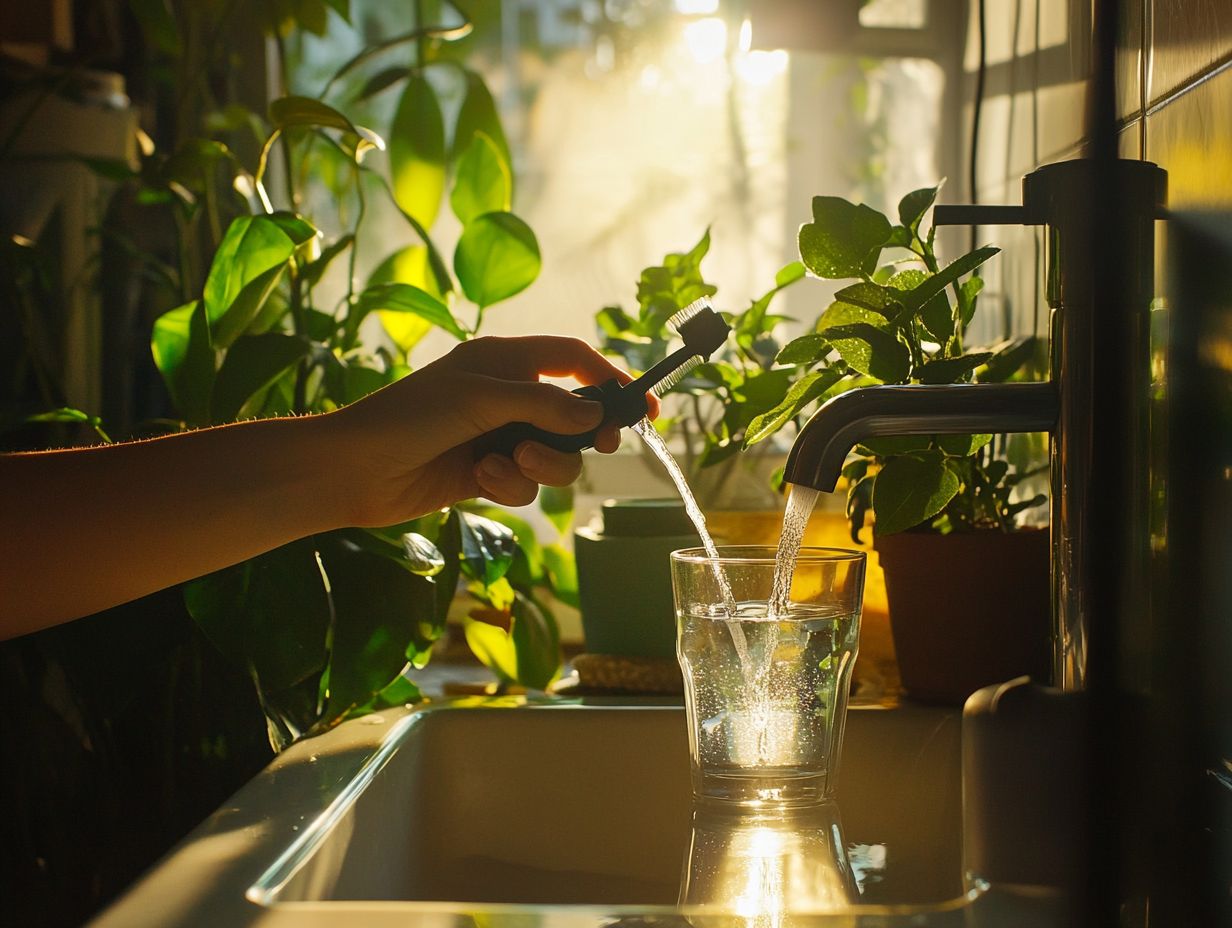
To effectively implement water-saving methods, it s essential for you to adopt practical tips and techniques that address both indoor and outdoor water use.
Start in your daily routines by fixing leaky faucets or installing low-flow showerheads, which can significantly reduce water wastage.
Outdoors, consider utilizing an efficient irrigation system to ensure your gardens receive just the right amount of water without excess runoff.
Add rain barrels to collect precipitation for gardening a sustainable practice!
Adopting a mindful approach to every drop is crucial. Run your dishwashers only on full loads, and use mulch in your garden beds.
These actions not only save water but also contribute to a healthier environment.
By incorporating these simple changes, you ll likely see a substantial decrease in your water bills while making a positive impact on one of the planet’s most precious resources.
Benefits of Water Conservation
The advantages of water conservation go well beyond simply saving water. They encompass substantial economic and environmental benefits that enhance sustainable water management practices within communities.
By prioritizing water conservation, you not only preserve a precious resource but also foster a healthier ecosystem. Additionally, you bolster local economies.
Environmental and Financial Benefits
Water conservation offers both environmental and financial advantages. This creates a remarkable win-win scenario for individuals and communities facing the realities of the ongoing water crisis.
Embrace strategies like using water-efficient appliances. Participating in local conservation programs can significantly cut your water consumption, whether at home or in a business.
This translates to noteworthy savings on your monthly utility bills. It also plays a vital role in safeguarding local ecosystems.
Saving water eases the strain on essential resources, enabling natural habitats to flourish and ensuring that wildlife has ample access to clean water.
Communities prioritizing these initiatives boost sustainability and build a shared responsibility for our planet.
Challenges and Solutions for Water Conservation
While you undoubtedly recognize the importance of water conservation, you may encounter various challenges that can impede effective implementation.
Addressing these obstacles requires targeted solutions that harness both municipal initiatives and active community involvement.
Addressing Common Obstacles
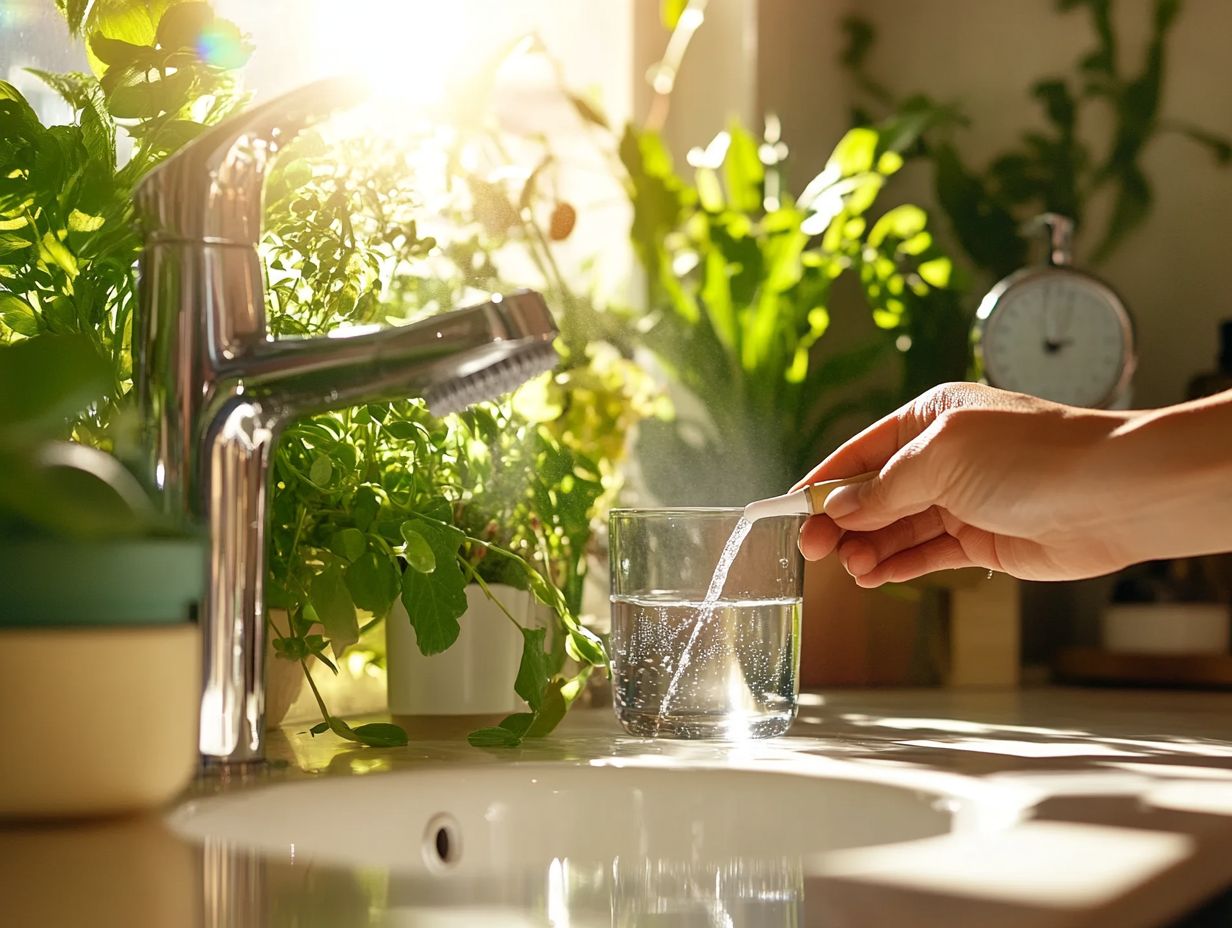
Addressing common obstacles to water conservation demands your commitment to education and community involvement. Both are essential for building awareness about conservation.
The path to effective water management frequently encounters significant hurdles, such as inadequate funding and a lack of access to essential resources.
Many communities find themselves hamstrung by tight budgets. This can severely limit the adoption of crucial water-saving technologies and initiatives.
Without sufficient educational programs, residents may remain oblivious to how their daily habits impact water usage.
By prioritizing community engagement and targeted educational efforts, these challenges can be tackled collectively. Everyone can take ownership of their water resources.
When local stakeholders unite and share knowledge, they establish a robust foundation for sustainable practices that foster long-term water conservation.
Implementing Water Conservation in Daily Life
Implementing water conservation in your daily life is essential for achieving long-term sustainability.
Start adopting water-saving techniques today! It involves utilizing eco-friendly products that effectively reduce your household water usage.
By making these thoughtful choices, you contribute significantly to a more sustainable future.
Strategies for Long-Term Sustainability
Strategies for long-term sustainability in water conservation invite you to integrate advanced water management practices. Utilize essential tools such as water-saving devices, rain barrels, and efficient irrigation systems.
To create a lasting impact, it’s vital for you and your community to establish clear sustainability goals. These should address current water usage while anticipating future needs.
By embracing innovative technologies like smart irrigation controllers and moisture sensors, you can optimize water application and significantly reduce wastage.
Educational programs and community workshops are crucial for raising awareness. They equip residents with the knowledge to adopt these techniques effectively.
Collaborating with local schools and organizations can amplify your message. This ensures that the principles of conservation are woven into the fabric of everyday life, ultimately guiding you toward a more sustainable future.
Frequently Asked Questions
What are the Basics of Water Conservation?
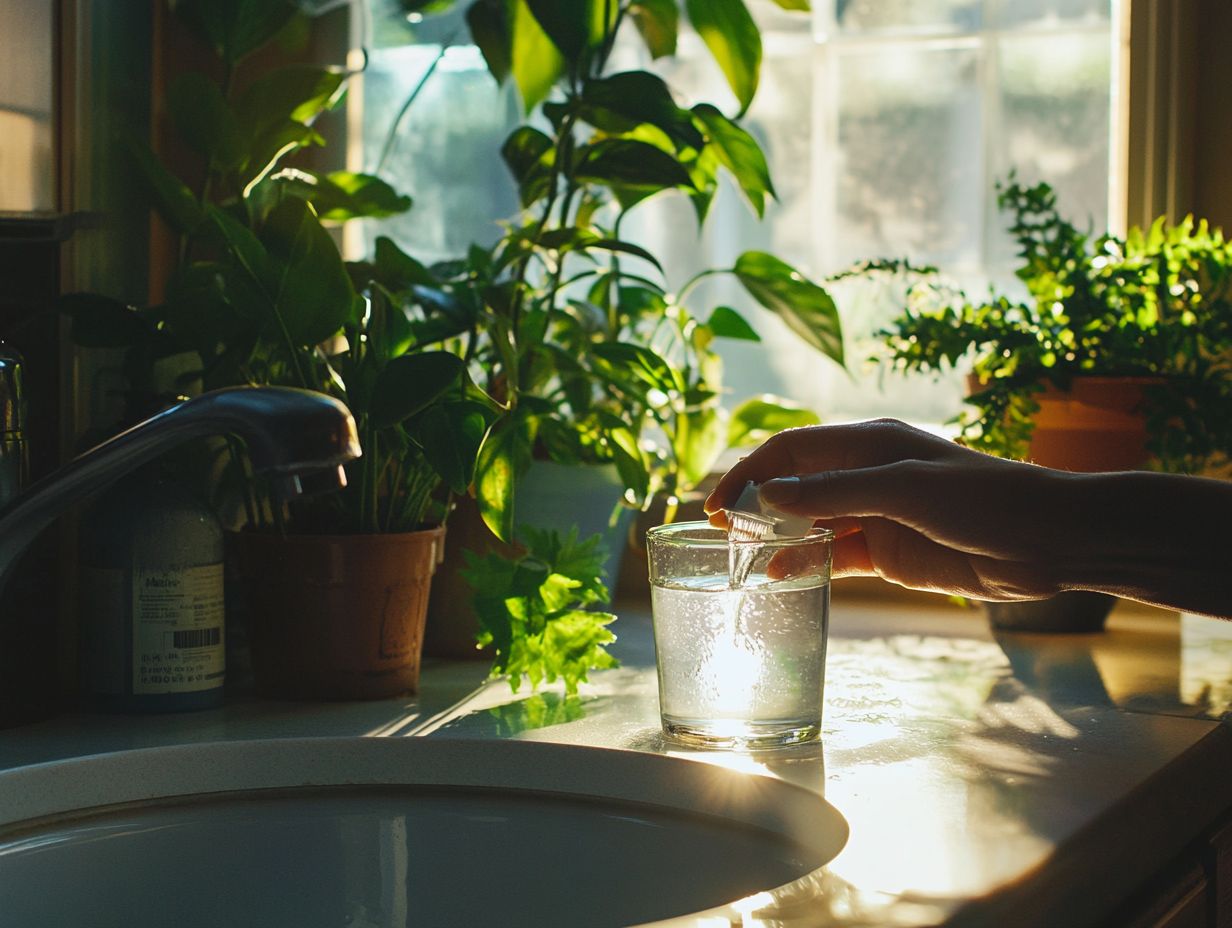
The basics of water conservation refer to the simple and everyday actions that individuals can take to reduce water usage and preserve this valuable resource, such as following common water conservation tips.
Join the movement today and make water conservation a priority in your life!
Why is water conservation important?
Water conservation is vital for our future. It helps preserve this limited resource and protects ecosystems that depend on it.
What are some examples of water conservation actions?
Fix leaks and take shorter showers. Use water-saving showerheads and turn off the faucet while brushing your teeth.
How can I conserve water in my home?
Check for leaks and install water-saving fixtures. Be mindful of your water usage habits to make a real difference.
What are some benefits of water conservation?
Conserving water can save you money on bills. It also helps lessen the strain on our water resources and protects the environment.
Are there any financial incentives for water conservation?
Yes! You may qualify for rebates when you install water-efficient fixtures. Some grants are also available for larger buildings or landscaping projects focused on water conservation.

